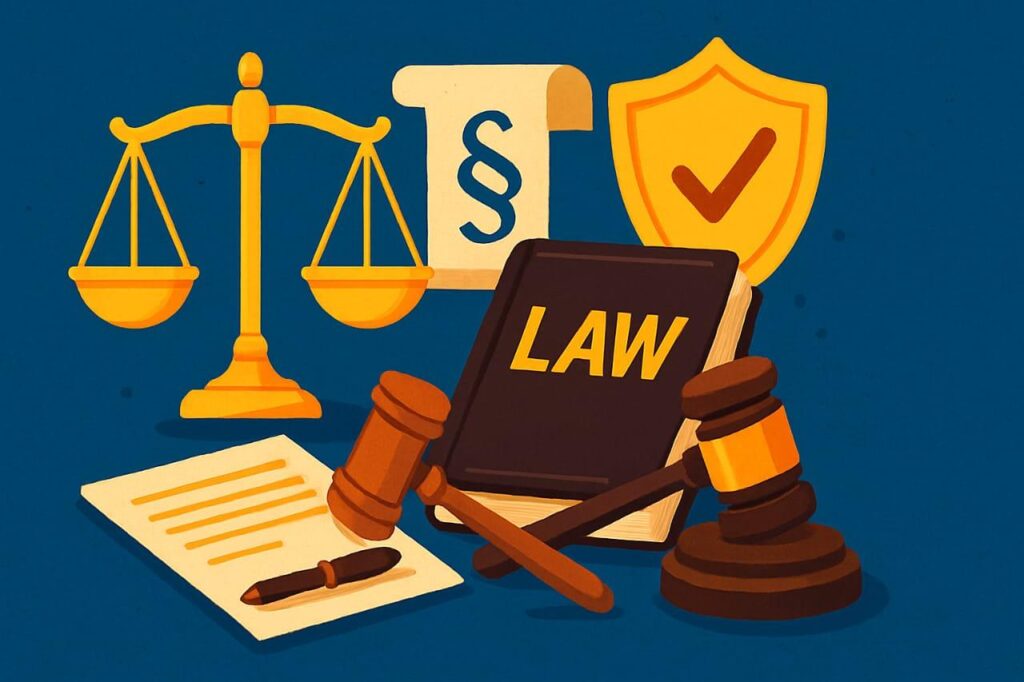Introduction
In a time when information moves at lightning speed and social media dominates public conversation, new social identities and behaviors are constantly emerging. One such identity drawing increasing attention in sociopolitical discussions is the Juwaiteer—a term used to describe a type of hyper-loyalist or digitally active nationalist.
Commonly found on online platforms, particularly in politically sensitive regions, Juwaiteers often act as vocal defenders of state accounts, government leadership, and national identity. While patriotism is a valued trait in every society, this unique digital persona walks a fine line between civic pride and coordinated influence, sometimes stifling open discourse. This phenomenon is particularly relevant in areas where digital engagement is monitored or swayed by state-led initiatives.
This article offers a comprehensive understanding of what this term means, its rise, functions, and consequences. Whether you’re a digital researcher, policymaker, journalist, or curious reader seeking insights into modern digital behavior, this guide will equip you with balanced, research-backed knowledge. By exploring the socio-political mechanisms surrounding the Juwaiteer persona, you’ll gain clarity on the broader consequences it has on free speech, national identity, and digital ethics in modern civic spaces.
Who is a Juwaiteer? Origins and Meaning

To understand the concept of a Juwaiteer, it’s essential to first define what the term actually encompasses. Although the term is relatively new and informal, it’s quickly becoming a staple in online political discussions in various regions, especially across the Middle East.
Key Characteristics
- Hyper-loyalist Behavior: Often determinedly defensive of government narratives.
- Digital Activism: Frequently posts and intensify state-approved messaging on social platforms.
- Anti-Dissent Stance: Typically confronts critics of the government or alternative political views.
- Ideological Consistency: Exhibits unhesitating support for national symbols, slogans, and leadership.
Explore how Juwaiteer influences online trends and discover latest films on Vegamovies with engaging digital content.
Historical and Cultural Context Behind the Term
The emergence of Juwaiteer-like identities is not an isolated phenomenon—it has historical and psychological roots grounded in nation-building and cultural conditioning.
Cultural Foundations
- Educational Narratives: School textbooks and curricula can shape strong nationalist ideologies.
- Media Representation: State-run television and press often reinforce “us vs them” rhetoric.
- National Trauma: Wars, invasions, or colonization can foster an environment where hyper-patriotism develops.
Influencing Sociopolitical Factors
- Political censorship and limited press freedom
- The illegalization of dissent under national security laws
- External criticism that fuels internal solidarity
The Role of Juwaiteers on Social Media
Social media has transformed how individuals interact with politics and authority. It has also become a breeding ground for identities like the Juwaiteer.
Online Behaviors
- Hashtag Wars: Leading coordinated efforts to dominate conversations with nationalistic trends.
- Trolling & Harassment: Targeting government critics, sometimes to the point of causing real-world consequences.
- Content Amplification: Sharing official press releases or leader speeches en masse.
- Reporting Accounts: Flagging disagreeing voices under the guise of moral or national protection.
Patriot vs Juwaiteer: Drawing the Line
It’s important to differentiate between passionate patriotism and performative or harmful nationalism.
Comparison Table: Patriot vs Juwaiteer
| Criteria | True Patriot | Juwaiteer |
| Embraces Critique | Yes — sees it as a form of improvement | No — views it as betrayal |
| Open to Dialogue | Encourages conversation | Shuts down opposing views |
| Source of Authority | Citizens and constitution | Government or ruling class |
| Primary Motivation | National progress | Loyalty to status quo |
Related Terms
- Constructive patriotism
- Blind loyalty
- Democratic discourse
Understanding this nuance helps build healthier societies, supporting patriots who want reform and progress while discouraging online mobs that weaponize loyalty against change.
The Psychology of Juwaiteer Behavior
What drives someone to become a Juwaiteer? Psychology provides several compelling theories.
Motivating Factors
- Cognitive Dissonance: People defend beliefs they feel emotionally tied to, even in the face of contrary evidence.
- Tribalism: Humans naturally form ‘in-groups’ and oppose ‘out-groups’.
- Validation and Identity: Social media likes and retweets reward behavior aligned with echo chambers.
Psychological Terms & Concepts
- Groupthink
- Moral absolutism
- Social reward mechanisms
This application often find a sense of belonging and purpose within nationalist digital communities, which offer emotional and social benefits that reinforce their behavior.
Organized or Organic? Behind the Scenes of Coordination
One common question is whether Juwaiteers act independently or if they are coordinated by authorities.
Possibilities
- State-Sponsored Units: Some nations employ cyber units or influencers to shape the public narrative.
- Volunteer Nationalists: Others are genuinely motivated citizens with strong ideological leanings.
- Hybrid Structures: A mix of both, where state influence mobilizes passionate individuals to take action.
Case Study: Saudi Arabia’s “Fly Army”
In 2020, reports emerged analyzing thousands of social media accounts promoting pro-government hashtags and attacking dissenters—many of which similar to this application behavior. Investigations suggested a mix of bots, paid accounts, and zealous volunteers.
Understanding motivation and coordination helps in identifying transparency in digital spaces and mitigating misinformation.
How Juwaiteer Narratives Impact Civil Discourse
The rise of hyper-nationalist digital identities has serious consequences for civil society.
Impacts on Society
- Polarization: Drowns nuanced debates in binary “with us or against us” rhetoric.
- Chilled Speech: Critics and champions may self-censor due to fear of backlash.
- Reduction of Online Trust: Users become skeptical of authenticity on digital platforms.
Juwaiteer-Like Phenomena Around the World
Although “Juwaiteer” as a term may be specific, similar behaviors are found globally.
Table: Global Parallels to the Juwaiteer Role
| Country | Group or Term | Characteristics Influencing Politics |
| China | 50-Cent Army | Paid to post pro-government content |
| India | IT Cell Members | Defend ruling party online, attack critics |
| Russia | Troll Factories | Spread pro-Kremlin propaganda |
| United States | Alt-right/Nationalist Trolls | Promote extreme nationalism, suppress dissent |
Cross-Comparative Learnings
These roles share common strategies: identity politics, digital manipulation, and a strong alignment with the ruling ideology.
Understanding these global parallels puts the Juwaiteer in proper perspective—a localized expression of a broader digital age phenomenon.
Responsible Engagement: What to Do When Encountering a Juwaiteer
Civic-minded internet users often wonder how to deal with hostile nationalists in digital spaces.
Best Practices
- Don’t Escalate: Avoid personal attacks that inflame tensions.
- Use Facts: Maintain a respectful tone backed by credible evidence.
- Report Abusive Behavior: Platforms offer features to flag domination and harassment.
- Stay Safe: Avoid sharing personal details; prioritize your digital security.
Proactive Solutions
- Promote digital literacy
- Support free press and fact-checking initiatives
- Create or engage with communities that value respectful dialogue
Handling Juwaiteers with maturity and knowledge helps reduce their power and amplify constructive voices instead.
The Future of this application Influence in a Changing World
As societies shift toward more digital engagement in governance, the Juwaiteer identity may also evolve.
Anticipated Developments
- AI Amplification: Bots may be trained to mimic emotional nationalist posts.
- Platform Accountability: Social platforms may be forced to intervene more seriously.
- Public Awareness: Improved media literacy may reduce the impact of such behaviors.
Encouraging Trends
- More whistleblowers speaking out
- International human rights organizations highlighting digital oppression
- Youth expressing nuanced, inclusive patriotism
In a rapidly initializing world, controlling the narrative will become harder. Societies that embrace pluralism, fact-based discussion, and emotional intelligence will be more resistant to the influence of any digital actor, including Juwaiteers.
Frequently Asked Questions (FAQs)
Is the term “Juwaiteer” offensive?
In some circles, yes. It’s often used to criticize overly aggressive or blind loyalty that shuts down discourse.
Are Juwaiteers officially employed by governments?
Sometimes, but not always. Some may act out of personal conviction, while others could be part of organized influence operations.
What platforms are they most active on?
Typically, platforms like Twitter/X, TikTok, and Facebook—especially those that influence regional politics.
Are there risks in criticizing Juwaiteers?
Yes. In some nations, opposing their behavior may lead to online harassment or worse, especially if the person is viewed as opposing the state.
Can Juwaiteer behavior be reformed?
With education, exposure to diverse views, and actual civic dialogues, any digital persona can evolve. The key is open-mindedness and accountability.
Conclusion
In a world where online identities carry real-world consequences, understanding terms like Juwaiteer becomes essential. While this identity may stem from nationalism, its modern expression often veers into dangerous territory—where disagreement is seen as treason and civic space is replaced by echo chambers.Recognizing the signs, implications, and responses to Juwaiteer behavior can empower individuals, protect community discourse, and promote healthier democratic environments. As technology and politics continue to merge, may we all strive for informed citizenship—rooted in love for our countries but grounded in reason, dialogue, and respect.






